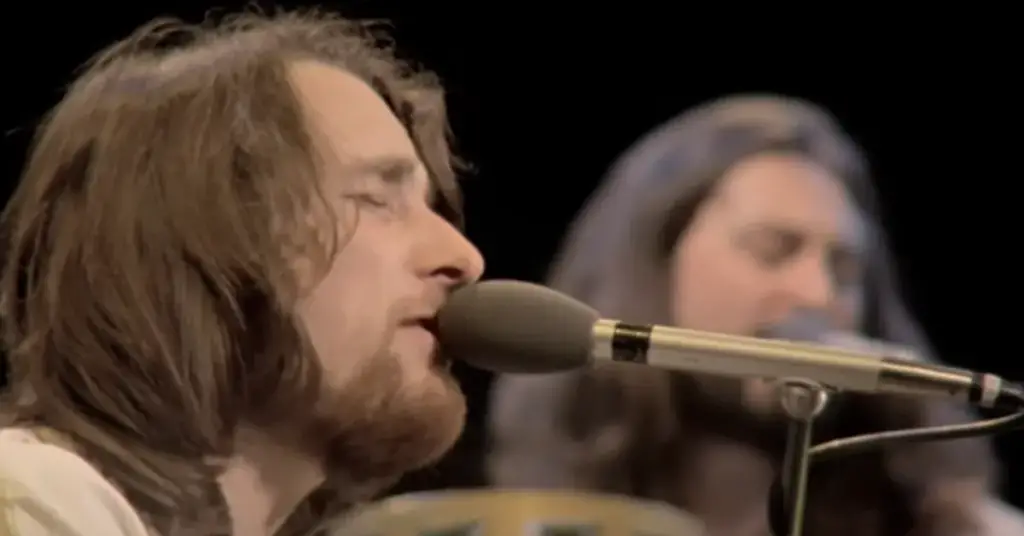Supertramp – “Take the Long Way Home”: A Winding Journey Through Self and Society
Released in 1979 as the final single from their blockbuster album Breakfast in America, “Take the Long Way Home” by Supertramp is one of those rare songs that sneaks up on you. With its breezy harmonica, upbeat piano, and melodic charm, it sounds almost cheerful—until you dig into the lyrics and realize you’re traveling through a quietly devastating meditation on identity, aging, and alienation.
It’s Supertramp at their best: deceptively catchy, emotionally rich, and full of contradictions.
The Sound: Melodic Sophistication and Sadness in Disguise
Musically, “Take the Long Way Home” is light on its feet. It opens with a warm, bluesy harmonica line (courtesy of frontman Rick Davies) that gives the illusion of easygoing travel. Roger Hodgson’s piano dances beneath the verses, giving the track a sense of motion—like a drive through familiar streets under fading daylight.
The arrangement builds with Supertramp’s signature blend of rock, pop, and artful instrumentation, including dreamy synths, subtle orchestration, and a dramatic, jazzy flourish of clarinet. It’s polished, elegant, and full of small details that reward close listening.
But the song’s true complexity lies beneath the gloss.
The Lyrics: The Long Road to Self-Reflection
On the surface, “Take the Long Way Home” could be about a man who literally avoids going home to delay a confrontation or a mundane reality. But on a deeper level, it’s about something much more universal: a man losing touch with his sense of worth, identity, and youth.
“So you think you’re a Romeo / Playing a part in a picture show…”
Hodgson sings with a bittersweet tone that drips with self-awareness. There’s no shouting or pleading—just a quiet resignation. The narrator is caught in a life that’s slowly slipping away, where fame, family, and fulfillment have all become blurry concepts.
“When you look through the years and see what you could have been / Oh, what you might have been, if you’d had more time.”
This is more than just a midlife crisis anthem—it’s a melancholy masterpiece about the human condition, the disconnect between how we see ourselves and how the world sees us, and the slow unraveling of youthful dreams.
A Standout on a Landmark Album
Breakfast in America is packed with hits—“The Logical Song,” “Goodbye Stranger,” “Breakfast in America”—but “Take the Long Way Home” stands out for its emotional depth. While the other tracks often lean into satire or social commentary, this one hits more personally.
It reached #10 on the U.S. Billboard Hot 100 and became a concert favorite. And despite its smooth production, it’s often cited by fans and critics as one of Supertramp’s most heartfelt and introspective works.
Legacy: A Quiet Classic
“Take the Long Way Home” hasn’t always gotten the same attention as some of Supertramp’s more flamboyant hits, but it has aged beautifully. Its themes of regret, reflection, and reluctant acceptance only grow more relevant as time passes.
It’s a song that resonates differently at 18 than it does at 40, and again at 60—because it’s about the moments between the milestones, the thoughts that haunt us when we’re alone in the car, taking the long way home not because we’re lost… but because we’re searching.

Final Thoughts
With “Take the Long Way Home,” Supertramp captured something deeply human—a melody that feels like a warm hug wrapped around lyrics that slowly break your heart. It’s beautiful, yes, but also quietly brutal in its honesty.
Because sometimes the longest road home isn’t measured in miles.
It’s measured in the years we spend figuring out who we are—
and wondering what might’ve been.


Facebook Comments